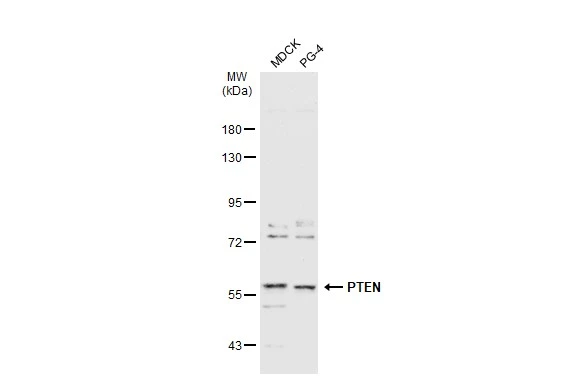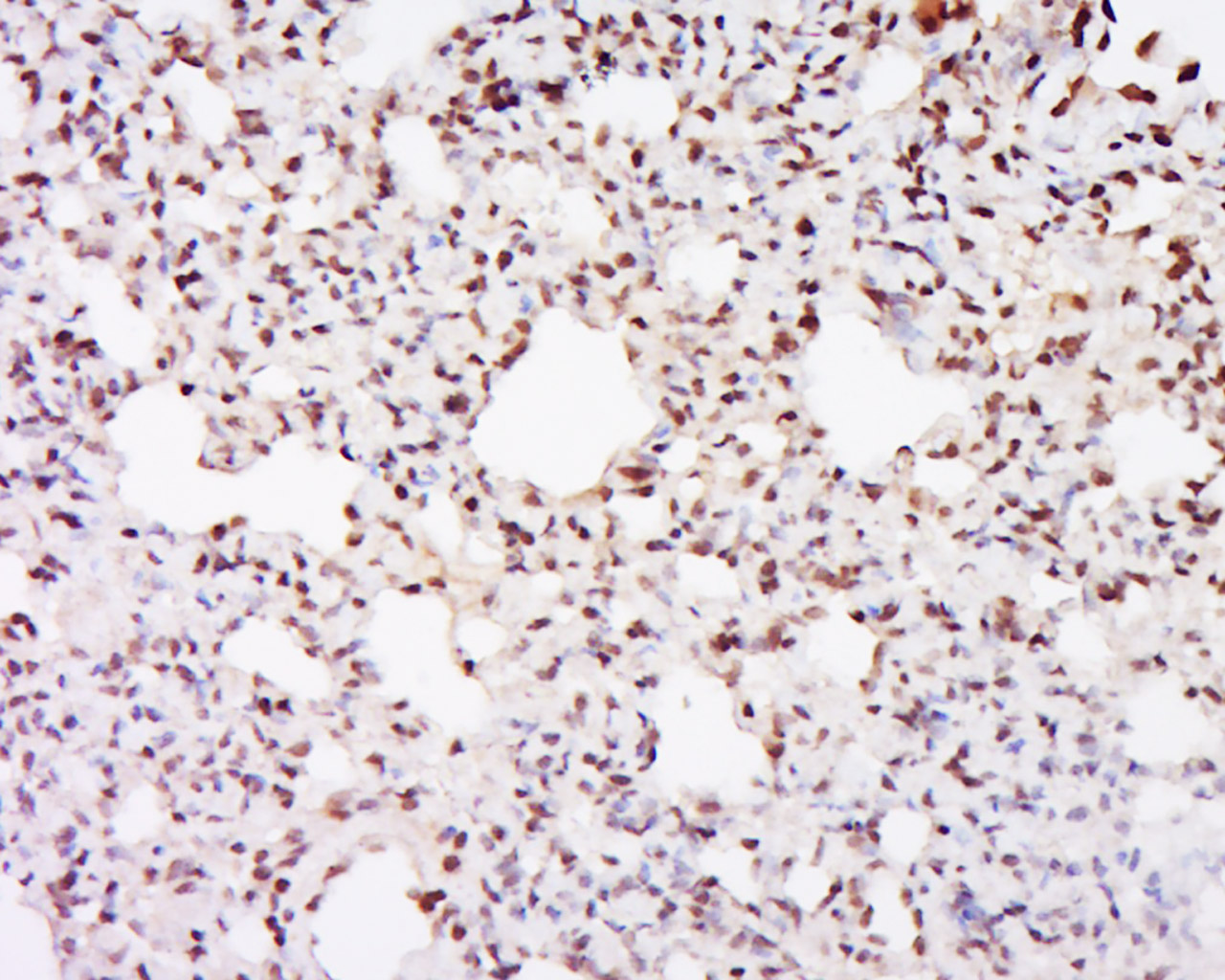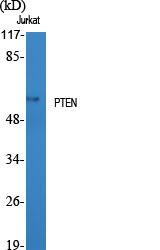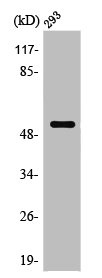PTEN Monoclonal Antibody
RD85658A
ApplicationsImmunoHistoChemistry, ImmunoHistoChemistry Paraffin
Product group Antibodies
ReactivityHuman
TargetPTEN
Overview
- SupplierReddot Biotech
- Product NamePTEN Monoclonal Antibody
- Delivery Days Customer5
- ApplicationsImmunoHistoChemistry, ImmunoHistoChemistry Paraffin
- CertificationResearch Use Only
- ClonalityMonoclonal
- Clone IDClone:2C10
- Concentration1 mg/ml
- ConjugateUnconjugated
- Gene ID5728
- Target namePTEN
- Target descriptionphosphatase and tensin homolog
- Target synonyms10q23del, BZS, CWS1, DEC, GLM2, MHAM, MMAC1, PTEN1, PTENbeta, PTENgama, TEP1, phosphatidylinositol 3,4,5-trisphosphate 3-phosphatase and dual-specificity protein phosphatase PTEN, MMAC1 phosphatase and tensin homolog deleted on chromosome 10, PTEN variant PTEN-K267Rfs*9, PTEN variant PTEN-L247*, PTEN variant PTEN-R234Afs*11, PTENepsilon, inositol polyphosphate 3-phosphatase, mitochondrial PTENalpha, mitochondrial phosphatase and tensin protein alpha, mutated in multiple advanced cancers 1, phosphatase and tensin-like protein, phosphatidylinositol-3,4,5-trisphosphate 3-phosphatase and dual-specificity protein phosphatase PTEN, protein tyrosine phosphatase
- HostMouse
- IsotypeIgG
- Scientific DescriptionTumor suppressor. Acts as a dual-specificity protein phosphatase, dephosphorylating tyrosine-, serine- and threonine-phosphorylated proteins. Also acts as a lipid phosphatase, removing the phosphate in the D3 position of the inositol ring from phosphatidylinositol 3,4,5-trisphosphate, phosphatidylinositol 3,4-diphosphate, phosphatidylinositol 3-phosphate and inositol 1,3,4,5-tetrakisphosphate with order of substrate preference in vitro PtdIns(3,4,5)P3 > PtdIns(3,4)P2 > PtdIns3P > Ins(1,3,4,5)P4. The lipid phosphatase activity is critical for its tumor suppressor function. Antagonizes the PI3K-AKT/PKB signaling pathway by dephosphorylating phosphoinositides and thereby modulating cell cycle progression and cell survival. The unphosphorylated form cooperates with AIP1 to suppress AKT1 activation. Dephosphorylates tyrosine-phosphorylated focal adhesion kinase and inhibits cell migration and integrin-mediated cell spreading and focal adhesion formation. Plays a role as a key modulator of the AKT-mTOR signaling pathway controlling the tempo of the process of newborn neurons integration during adult neurogenesis, including correct neuron positioning, dendritic development and synapse formation. May be a negative regulator of insulin signaling and glucose metabolism in adipose tissue.
- ReactivityHuman
- Storage Instruction-20°C
- UNSPSC12352203







